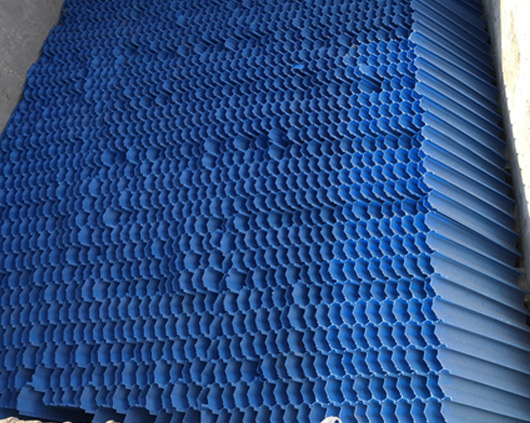


Products--
- Sewage Treatment Plant
- Compact Electrolysis Sewage Treatment Plant
- Effluent Treatment Plant
- Reverse Osmosis Plant
- Filtration
- Ultra Filtration Plant
- Microfiltration
- Nanofiltration Plant
- Demineralisation Plant
- Zero Liquid Discharge Plant
- Softener Plant
- Lamella Clarifier
- Swimming Pool
- Water Harvesting Plants
Services--
Lamella Clarifier / Tube Settler
In both categories laminar conditions are required to obtain a sharp separation between the settling solids and the liquid so that the upward velocity of the liquid is lower than the settling velocity of the finest solid matter. Since velocity is directly related to surface area the larger the area the better the separation. If the area is too small the upward velocity goes up and a fraction of fine particles will migrate to the surface and report to the overflow so the surface area is a critical factor in sizing. Comparing the two categories the periphery depth of conventional clarifiers have a long sedimentation path of about 2-3 meters whereas the clearance between lamella plates, in analogy to depth, have a short path of 5-10 cm.
Two plate pack compartments with overflow launders that straddle the feed launder. Each stack consists of a set of plates at an inclination of 45-60 degrees and a clearance of 5-10 cm depending on the volume and sliding characteristics of the settling sludge as it enters hindrance. A sludge hopper at the bottom of the settler tank with an outlet connection.
Advantage of lamella clarifiers are:
- Lamella clarifiers are significantly more compact than their conventional counterparts and
hence amenable to a pre-feb package design. - As steep hoppers are provided sludge removal is possible without the aid of mechanical
scrapers. As no, mechanical equipment is needed these systems are maintenance free. - As sludge slides down the lamella plants in to the underlying hopper, parts of the bound water in
the sludge is released thereby reducing the water content of the sludge. - Eddy currents and solids carry over due to win effects are eliminated as lamella plates arrest
wind penetration.

